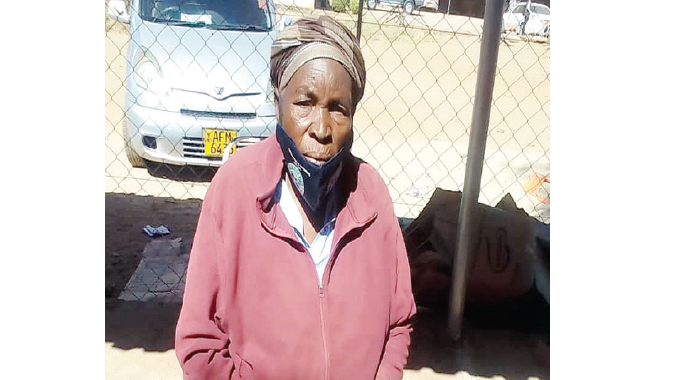Chronic patients face challenges

Sukulwenkosi Dube-Matutu, Chronicle Reporter
SOME chronic patients in the country continue to miss out on their medication because of financial challenges.
Transport costs have also made it difficult for some to access their medication. The prevailing Covid-19 pandemic has not made the situation any better for them. With inter-city travel banned some of them rely on pirate kombis and taxis that are charging exorbitant fares, especially for those who live in rural areas.
Some of them are now skipping their medication.
According to the Zimbabwe Vulnerability Assessment Committee (ZimVAC) 2021 Rural Livelihoods Assessment Report seven percent of households in the country have members suffering from chronic illnesses. Matabeleland North Province has the highest proportion with 9 percent followed by Matabeleland South Province and Midlands with 8,2 percent and 8,5 percent, respectively.
Thirty-one percent are HIV and Aids patients while 24 percent suffer from hypertension and high blood pressure.
The report further states that 16 percent missed their medication. The main reason for missing medication was high costs. Others did not have the required currency to purchase the medication or did not have transport to go and collect the drugs among other reasons.
Mr Bayethe Sibanda from Paye Village, Ward 14 in Gwanda who suffers from high blood pressure said he has to buy Enalapril and Hydrochlorothiazide tablets every month. He said his medication is sometimes unavailable at the local clinic forcing him to travel to town to buy it.
Mr Sibanda said the medicine is too expensive for him as he is just a pensioner. He said with intercity travel banned he has to pay R50 for transport. Mr Sibanda said the pirate kombis sometimes inflate their fares to R80.
“I’m suffering from high blood pressure and each month I have to buy Enalapril and Hydrochlorothiazide tablets. Each month I need about R150 to buy my medication. I’m a pensioner and every month I get a measly $1 000 yet I have to buy the medication,” he said.
“Sometimes when my medication isn’t available at the local clinic, I have to travel to Gwanda Town to get it there which means I have to fork out bus fare. With intercity travel banned the buses we used to rely on are not operating and therefore, we resort to boarding pirate taxis and kombis but they overcharge us. I sometimes skip buying my medication because I can’t afford it.”
Mrs Rachael Sibanda (80) from Gwanda said she suffers from high blood pressure and diabetes. She said each month she needs R250 for her medication. She said each month she receives $500 pension money for her late husband who was employed in the manufacturing sector. She said this money was hardly enough to cover her medical costs.
Mr Modas Moyo (69) from Gwanda said he suffers from high blood pressure, gout and diabetics. He said each month he needed about R500 to buy medication.

Modas Moyo
Mr Moyo said there was need for Government to provide chronic patients with free medication from time to time.
“Access to health is a basic right and if I’m failing to buy medication then it means that I’m being deprived of my right. Our condition as chronic patients has to be considered as a peculiar situation and Government has to help us. Even if we are not given free medication all the time but there is need for us to be assisted once in a while. If we can’t access medication then it means we will be putting our lives at risk,” he said.
Mrs Gracious Nkomo from Bulawayo said she suffers from ulcers and she had to buy medication which costs about R1 000 after every two months. She said when she first bought the medication, she thought it would be a once-off situation but her condition was persisting.
“I was diagnosed with ulcers early last year and the doctor prescribed me some medication which cost me about R1 000. At first, I thought that once I finished the course my condition would improve and I wouldn’t need the medication anymore. When I started taking my medication my condition improved but a few weeks after finishing the course it worsened. I went back to the doctor and I was prescribed the medication again.
“I now have to buy this medication after every two months or so. Because of financial challenges at times, I don’t buy the medication and I just have to endue the pain. I need the medication but it’s beyond my reach,” she said. — @DubeMatutu.









Comments